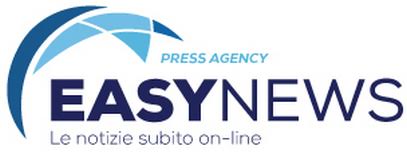
Youth4Health: Paving the way for WHO/Europe’s first-ever regional network of its kind
Ensuring young people partner with governments and WHO to co-design policies and frameworks impacting their health and well-being
Tirana, Albania – October 28, 2022
Over half of the people in the world, and about one in three people in the WHO European Region – encompassing 53 countries across Europe and Central Asia – are under 30. To help ensure that young people have a genuine say in policy decisions affecting their health and future, the WHO Regional Office for Europe has laid the foundation for Youth4Health, intended to be a landmark network of youth organizations and advocates representing diverse issues but underpinned by the principle of health as a human right accessible to one and all.
Youth4Health was convened this week as the first-ever WHO/Europe forum of its kind from October 25-27 in Tirana – the European Youth Capital for 2022 – in partnership with the Albanian Ministry of Health and Social Protection, the Office of the Albanian Minister of State for Youth and Children, the Municipality of Tirana and the United Nations Population Fund (UNFPA). About 500 young people from 30 countries participated in the forum along with almost 200 other delegates representing government, UN and civil society partners.
“It’s high time young people have a real say in health decision-making at all levels, moving beyond tokenism to genuine participation alongside governments and other authority figures,” said Dr Hans Henri P. Kluge, WHO Regional Director for Europe. “Young people aren’t the decision makers of tomorrow; they are actually the decision makers of today, experts of their own reality and experiences. For far too long, they’ve been ignored or condescended to. We’re joining forces with them to change that.”
Although young people represent diverse geographies and cultures, they face many of the same challenges when it comes to their health and well-being. From the long-running COVID-19 pandemic and its impact on mental and physical health, to socioeconomic challenges impacting opportunities in life, to the climate crisis impacting the survival of our entire planet. And, not least, sexual and reproductive health and rights – including and especially for the most excluded and marginalized populations.
“We, the youth, are often labelled the emerging future – but we are actually part of creating it here and now,” said Jack Kavanagh from Ireland, a health professional and youth advocate who suffered a life-changing spinal cord injury a decade ago, when he was barely 20. “We the youth are diverse in many ways including gender, sexual orientation, ethnicity, mental health, disability. It’s time we had a seat at the table with the policy-shapers and decision-makers to ensure decisions about us are not taken without us.”
“In Albania, from a population of less than three million people, nearly 40 percent are young persons under 30,” noted Ogerta Manastirliu, Minister of Health and Social Protection of Albania. “In recent years, and especially amid the COVID-19 pandemic, we have been strengthening our efforts to address their health needs – including a priority focus on mental health. Youth engagement is essential to help shape, refine and achieve this.”
“The Tirana Municipality has made significant advances in making city spaces more conducive to health and fitness activities, with a focus on the needs of children and youth,” said Erion Veliaj, Mayor of Tirana. “Much of this was done through feedback from young persons. Moreover, during the pandemic we worked closely with health authorities to find ways to lessen the mental health impact of social distancing and other measures that were taking a toll on our young persons. Through the process, we’ve realized how crucial it is to make youth part of our decision-making processes to ensure stronger buy-in and better outcomes.”
“Youth empowerment shouldn’t just begin when someone is in their teens, but rather from childhood itself, through opportunities to learn, grow and lead,” said Bora Muzhaqi, Albanian Minister of State for Youth and Children. “Comprehensive sexuality education, which incorporates lessons on gender equality, diversity and inclusion, paves the way for young persons to speak for themselves with greater confidence from an earlier age, carving out their own space in a world where adults often choose to ignore them.”
When planning the Youth4Health forum, WHO/Europe and partners took care to ensure that young people themselves helped craft the agenda through consultations organized via WHO country offices and partners in the Region, resulting in a number of priority issues shortlisted for discussion across the three days, including mental health; sexual and reproductive health; misinformation or fake news about COVID-19 and other health issues; and the climate crisis and its damaging health consequences.
“Youth need full access to appropriate and confidential health care services, including sexual and reproductive health services, but in many countries that is not yet a reality, and in others we’re seeing growing pushback on progress made previously,” noted Marta Diavolova, the United Nations Population Fund’s Strategic Partnerships Adviser for Eastern Europe and Central Asia. “Young persons must be given the platform they need to advocate for their rights and choices, and UNFPA – the UN’s sexual and reproductive health agency – aims to do just that, in partnership with WHO and other stakeholders.”
Delegates at Youth4Health concluded the forum by issuing a blueprint with concrete action points.
“For Youth4Health, the road from Tirana leads to Almaty, Kazakhstan, where we will hold the 2023 WHO/Europe Regional Committee, our highest decision-making body, comprising of health ministers of all our 53 Member States,” said Dr Kluge. “There, in September next year, we’ll request countries to endorse Youth4Health, which will help strengthen youth inclusion at the regional and national level. As well, WHO/Europe will help weave Youth4Health into existing regional initiatives, like the Pan-European Mental Health Coalition, to give network members the exposure to how WHO and its Member States work. We are determined to move from tokenism to full-fledged inclusion for youth. We invite the Youth4Health membership to help us chart the roadmap that will get us there. As one delegate this week told us, ‘Just ask the young people. They know everything.”
For more information, or to arrange media interviews, contact:
Marie Wolf, WHO/Europe: mwolf@who.int
Ida Augustsson, WHO/Albania: augustssoni@who.int
Notes to editors:
The Youth4Health forum concluded with an outcome statement calling for five actions to increase youth engagement and five actions to improve youth health and well-being going forward.
Five actions to increase youth engagement in health decision-making
- Advocating for young people in all their diversity to be partners in decisions concerning their health and well-being.
- Removing barriers, promoting and advancing opportunities for meaningful engagement of young people in all areas and across all sectors.
- Empowering those who are not often heard or seen (addressing intersecting inequalities) by actively seeking their participation, creating safe, youth-friendly spaces and using inclusive ways to ensure that everyone can share their opinions and experiences.
- Creating spaces where intergenerational collaboration and conversations can take place and yield results.
- Supporting the launch of WHO/Europe’s youth network at the 73rd session of the WHO Regional Committee for Europe, to include youth perspectives in all areas of WHO/Europe’s work, as well as a biennial youth health and well-being forum.
Five actions to improve youth health and well-being
- Raising awareness of health and well-being issues that matter to and affect us all; particularly those related to young people and their futures.
- Working together to promote and create healthy and sustainable environments that directly address current health and climate issues and risks.
- Working together across sectors and disciplines to find innovative solutions to complex issues that affect us all; for example, issues such as the health effects of climate change or extended conflicts.
- Putting into practice the lessons learned from the COVID-19 pandemic: to become more resilient and better prepared for future crises, including combating the spread of harmful misinformation.
- Collaborating to improve frameworks, systems, strategies and programs in place for long-term, evidence-informed and people-centred health policies that can be adopted at all levels.
Facts and figures
- Over 332 million, one in three people, in the WHO European Region is under 30. In four countries in Central Asia, that number rises to one in two.
- The world currently has the largest generation of young people in history with approximately 1.8 billion people between the ages of 10-24 years.
- In Albania, 38.5% of the population is under 30, equaling 1,1 million people.
- WHO/Europe’s youth initiative kicked off in 2021, culminating in Youth4Health in 2022. The initiative aims to amplify and embed youth voices and perspectives in all areas of WHO/Europe’s work. The youth network will be endorsed by Member States at the 73rd session of the WHO Regional Committee for Europe in Almaty, Kazakhstan.
- Mental health: COVID-19, the war in Ukraine and climate-related emergencies have placed enormous stress on people globally and across the WHO European Region, including young people. While most young people have coped well given the extraordinary changes in their freedoms and lifestyle, the number of young people experiencing mental health conditions, such as anxiety and depression, has increased significantly in the WHO European Region.
- The mental health impacts of COVID-19 and other recent events have particularly impacted young people who:
- already experienced mental health problems before the pandemic;
- lost their job and are not in employment, education or training;
- are from marginalised communities; and/or
- have limited family and/or social support.
- The mental health impacts of COVID-19 and other recent events have particularly impacted young people who:
This information was brought to you by Cision http://news.cision.com
 Youth4Health forum |
 Official Opening Youth4Health26Oct2022 002 |
If you would rather not receive future communications from WHO Regional Office for Europe, please go to https://optout.ne.cision.com/en/RNT7t43UaY6UxnUMC5AhR8fmUzUHEmnUJdN9X7J2jmXcBX9NA7RGnFtAJCHxFM6RBLHkAPedqEeQ1EpmNMCk5NDAo5yMrKh8an3EcRSbowcDc6b7SeVEZSxhpw3H6o7NDwx.
WHO Regional Office for Europe, Marmorvej 51, Copenhagen, 2100 Denmark





